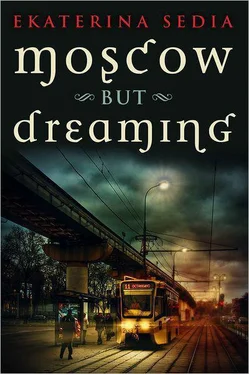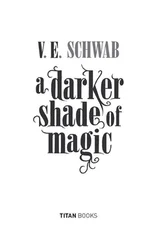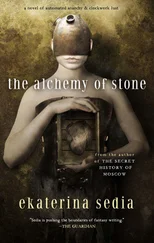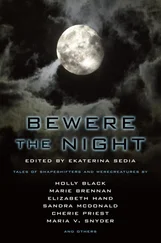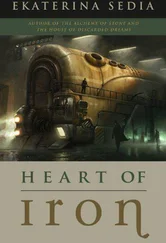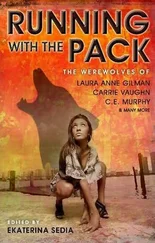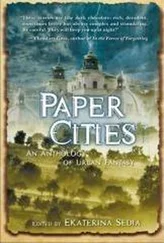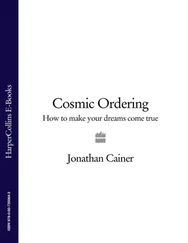Kovalevsky always had vivid imagination, but this seemed more than mere fancy—it was as if the detached paw had the power to reach inside his eyeballs somehow and turn them to hidden places, making him see—see as Menshov staggered back, the saber now swinging blindly. He propped his left hand against the bedpost, gaining a semblance of control, just as the monster reached its deformed paw and swept across Menshov’s bare shoulder, drawing a string of blood beads across it.
The old man hissed in pain and parried, just as the creature stepped away, hissing back in its low throbbing manner. With every passing second, Kovalevsky’s mind imagined the creature with greater and greater clarity, just as the still-sane part of him realized that the longer he stared at the accursed paw, the closer he moved to summoning the creature itself.
He clapped his hand over his eyes, twisting away blindly. Whatever strange power had hold of him deserved the name Menshov gave it—it was unclean and ancient, too old for remembering and cursed long before the days of Cain.
Menshov’s mind was apparently on a similar track. “If we die here,” he said, quietly, “there’s no way for us but the hellfire.”
“Would there be another way for us otherwise?”
Menshov stared, perturbed. “We’ve kept our oath to the Emperor. We fought for the crown, and we fought with honor.”
“That’s what I mean.” Kovalevsky forced his gaze away from the paw and turned around, as little as he liked having it behind his back. “Come now, let’s see who else can we find. And as soon as we do, we best leave—if they let us, if we can.”
They searched for hours—but no matter how many doors they knocked on, only empty shaded coolness greeted them, as if every house in the village had been gutted, hollowed of all human presence, and left as an empty decoration to await a new set of actors. And the more they saw of it, the more convinced Kovalevsky grew that the buildings must’ve been like that— empty, flat—before they’d moved in. Where were the villagers? And, most importantly, where was Olesya? Was she just a vision, a sweet nightmare created from his loneliness and fear, aided by the soothing latex of the poppies in the yard and Patsjuk’s dark green tea?
“Was it always like this?” Menshov said when the two of them finally stopped, silent and sweating. “Do you remember what this place was like when we first got here?”
Kovalevsky shook his head, then nodded. “I think it was… normal. A normal village.”
He remembered the bustling in the streets, the peasants and the noisy geese, bleating of goats, the clouds of dust under the hooves of the White Army’s horses when they rode in. Did they ride in or did they walk? If they rode, where were the horses— gone, swept away with everything else?
And then he remembered—a memory opened in his mind like a fissure—he remembered the view of the village and how quiet it was, and how he said to a man walking next to him (they must’ve been on foot, not horseback) that it was strange that there was no smoke coming from the chimneys. And then they walked into the village, and there was bustle and voices and chimneys spewed fat white smoke, and he’d forgotten all about it. “Maybe not so normal,” he said. “I remember not seeing any smoke when we first approached.”
Menshov nodded, his gray mustache shaking. “I remember that too! See, it was like an illusion, a night terror.”
“The whole town?” Kovalevsky stopped in his tracks, his mind struggling to embrace the enormity of the deception—this whole time, this whole village… It couldn’t be. “What about Patsjuk and his tavern? We were just there. Is it still… ?”
“Let’s find out.”
As they walked back, the dusty street under their feet growing more insubstantial with every passing moment, Kovalevsky thought that perhaps this all was the result of this running out of land—running out of the world. After all, if there was no place left for the White Army, wouldn’t it be possible that some of them simply ran and tripped into some nightmare limbo? It seemed likely, even.
The tavern stood flat and still, and it seemed more like a painting than an actual building—it thinned about the edges, and wavered, like hot air over a heated steppe. Illusion, unclean forces.
Patsjuk sat on the steps, and seemed real enough—made fatter, more substantial by the fact that Olesya perched next to him, her round shoulder, warm and solid under her linen shirt, resting comfortably against the tavern’s owner’s. Both her hands were intact, and Kovalevsky breathed a sigh of relief, even if he wasn’t sure why.
She grinned when she saw Kovalevsky. “There you are,” she said. “See, you took my medicine, took my poison, and now you’re lost. The loving goat-mother will absorb you, make you whole again.”
Menshov grasped Kovalevsky’s shoulder, leaned into him with all his weight. “Why?” he said.
A pointless question, of course, Kovalevsky thought. There were never any whys or explanations—there was only the shortage of land. By then, the ground around them heaved, and the dead rose, upright, the nails of their hands still rooting them to the opened graves, their eyes closed and lips tortured. The streets and the houses twisted, and the whole world became a vortex of jerking movement, everything in it writhing and groaning—and only the tavern remained still in the center of it.
Kovalevsky’s hand, led by a memory of the time when he cared enough to keep himself alive, moved of its own volition, like a severed lizard’s tail, and slid down his leg and into his boot, grasping for the horn handle of the knife he always had on him. He hadn’t remembered it, but his body had, and jerked the knife out, assuming a defensive, ridiculous posture. He swiped at the air in front of him, not even trying for Patsjuk’s belly, then turned around and ran.
His boots sunk into the road as if it were molasses, but he struggled on, as the air buzzed around him and soon resolved into bleating of what seemed like a thousand goats. Transparent dead hands grasped at him, and the black thing, more goat than a cat now, tried to claw its away out of his skull. Kovalevsky screamed and struggled against the wave of ancient voices, but inhuman force turned him back, back, to face the horrors he tried to run from.
So this is how it is, Kovalevsky thought, just as Olesya’s face stretched into a muzzle, and her lower jaw hinged open, unnaturally wide. Without standing up, she extended her neck at Menshov. The old man grasped at his belt, uselessly, looking for his saber, even as Olesya’s mouth wrapped around his head.
On the edge of his hearing, Kovalevsky heard whinnying of the horses off in the distance, and the uncertain, false tinny voice of a bugle. The Red Armies were entering the town of N.; he wondered briefly if the same fate awaited them—but probably not, since they were not the ones rejected by the world itself.
Kovalevsky closed his eyes then, not to see, and resigned himself to the fact that his run was over, and at the very least there would be relief from the sickening crunch that resonated deep in his spine, from the corpses and their long fingernails that dragged on the ground with barely audible whisper, and from the tinny bugle that was closing on him from every direction.
1.
When people starve, their eyes become large and luminous, enough so as to invite comparisons with visages of saints on the icons. Which makes sense, since the saints were traditionally ascetic— anorexic even. I forever remember those golden-light eyes, softly unfocused, radiant, otherworldly, so sharply contrasting with frost-bitten fingers and red, peeling skin on wind-burned cheeks.
Читать дальше
